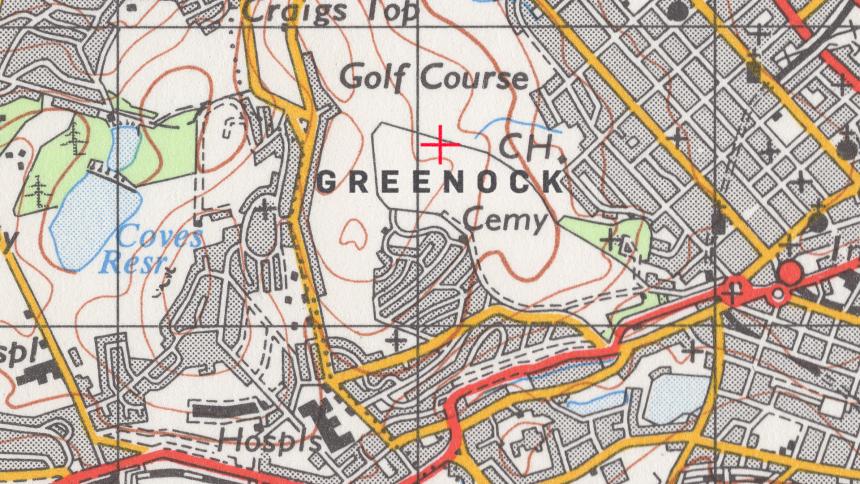
Greenock: Crime Profile
Some murders are well-known to almost everyone who follows true crime stories. Others are remembered only by the communities they affected – the police officers, reporters and loved ones who had to deal with the aftershocks. In Murdertown, Katherine Kelly looks at these tragic and disturbing cases, in villages, towns and cities across the nation.
In Greenock, a town around 30 miles from Glasgow, the murder of Elaine Doyle looms large in the public consciousness. As Katherine Kelly discovers, her murder – at the age of 16 back in 1986 – became a maddening riddle for detectives in the area, whose dogged attempts to cage her killer would span many, many years.
The truth is Elaine Doyle has been just one of many victims in Inverclyde, the council region which encompasses Greenock, over the years. In 2019, it was reported that Inverclyde has the highest murder rate in the UK, exceeding hotspots such as London. And one of the most unusual and heartbreaking cases involved a teenager whose disappearance wasn’t even noticed for decades.
Is it possible that a girl with special needs, and firmly on the radar of social services, can be murdered without anybody noticing? You’d think not, but the case of Margaret Fleming sets a new standard in bizarre British crimes. Margaret was a vulnerable child with learning difficulties, whose father passed away when she was young. Although her mother was still alive, Margaret was taken under the wing of carers Edward Cairney and Avril Jones, while Margaret’s temper tantrums frayed her relationship with her mother. Eventually, Margaret voluntarily decided to stay with the carers full time, and she was last seen by anyone other than Edward and Avril was in December 1999.
In the years that followed, the carers claimed hundreds of thousands of pounds in benefits in Margaret’s name. In 2012, a benefits investigator visited their near-derelict home – she was told that Margaret didn’t want to see her. It was only in 2016, when the carers attempted to apply for more benefits, claiming Margaret needed ‘constant care’ and was eating out of a dog bowl, that the authorities finally twigged something was amiss.
When a BBC journalist turned up at their home to interview the couple, the carers made the flabbergastingly unlikely assertion that Margaret had run off to Poland where she was apparently a drug-dealing gang leader.
‘Now, this was a woman whose learning difficulties were so complex she couldn't manage her financial affairs,’ the journalist later reported, when describing the surreal interview.
Edward and Avril were eventually arrested and convicted of Margaret’s murder, despite nobody ever being discovered. As the detective leading the investigation put it, Margaret Fleming had been ‘manipulated, abused, neglected and ultimately murdered by the two people who should have been looking after her, and that her last days in that dilapidated, rotting house must have been ‘a living hell’. And yet nobody even noticed until it was far, far too late.
Back in 1963, the people of Greenock had no idea they had a budding monster in their midst. He was Robert Black, a troubled teenager working as a delivery boy for a local butcher. It later transpired that Black molested dozens of young girls at the homes he made deliveries to, and he was actually arrested for sexually assaulting a seven-year-old girl at an old air-raid shelter. But this was just the start. Over the years that followed, Black eventually ‘graduated’ from molesting girls to outright murder. His job as a van driver delivering advertising posters across the country meant it was easy for him to strike in far-flung communities and disappear. His first victim, a nine-year-old girl called Jennifer Cardy, was snatched while she was cycling to a friend’s house in County Antrim. Her body was found less than a week later, clearly the subject of sexual assault.
Yet it wasn’t detective work that snared Black; it was his own reckless nature.
After that, Black kidnapped and murdered 11-year-old Susan Maxwell in the English village of Cornhill-on-Tweed, five-year-old Caroline Hogg in Edinburgh, and 10-year-old Sarah Jayne Harper in Leeds. A vast manhunt ensued, with numerous police forces working together and even consulting the FBI for help.
Yet it wasn’t detective work that snared Black; it was his own reckless nature. In July 1990, a retired postman saw Black snatch a young girl right off the street and bundle her into his van in the Scottish village of Stow. Incredibly, instead of driving far away, Black double-backed and drove right back into the village after assaulting the girl – right into the path of police who’d been alerted by the postman.
One of the coppers on the scene was the missing girl’s father, and found her in the back of the van, gagged and stuffed in a sleeping bag with a hood over her head. ‘What a day’s it been,’ Black said to police as he was driven to the station. The ruthless sex beast, who’d brought such anguish to so many people, died in jail in 2016.
An interesting footnote in the annals of crime in Greenock is the story of John Kerr, who was hanged in the town in June 1827. His crime was, in the words of a contemporary report, the ‘cruel and barbarous murder of his own wife’. What makes the story notable is the fact that Kerr apparently delivered an impassioned speech from the gallows, warning the assembled crowd about the perils of drinking.
Kerr, who made sails for ships, had bludgeoned his wife to death in a drunken rage, and was ‘quite resigned to his fate’. He even asked the witnesses who’d implicated him to visit him in jail where he told them the ‘evidence they had given was quite correct’. Moments before he was executed, the calm and collected Kerr addressed the spectators, telling them to ‘beware of drunkenness and a hasty temper, as these were principally the causes which placed him in the awful situation in which he now stands.’
He then bid ‘a long farewell to you all’ before, in the poetic words of a contemporary writer, he had the noose around his neck and was ‘transferred from time into eternity’.
Watch Murdertown season 2 Mondays at 9pm.





